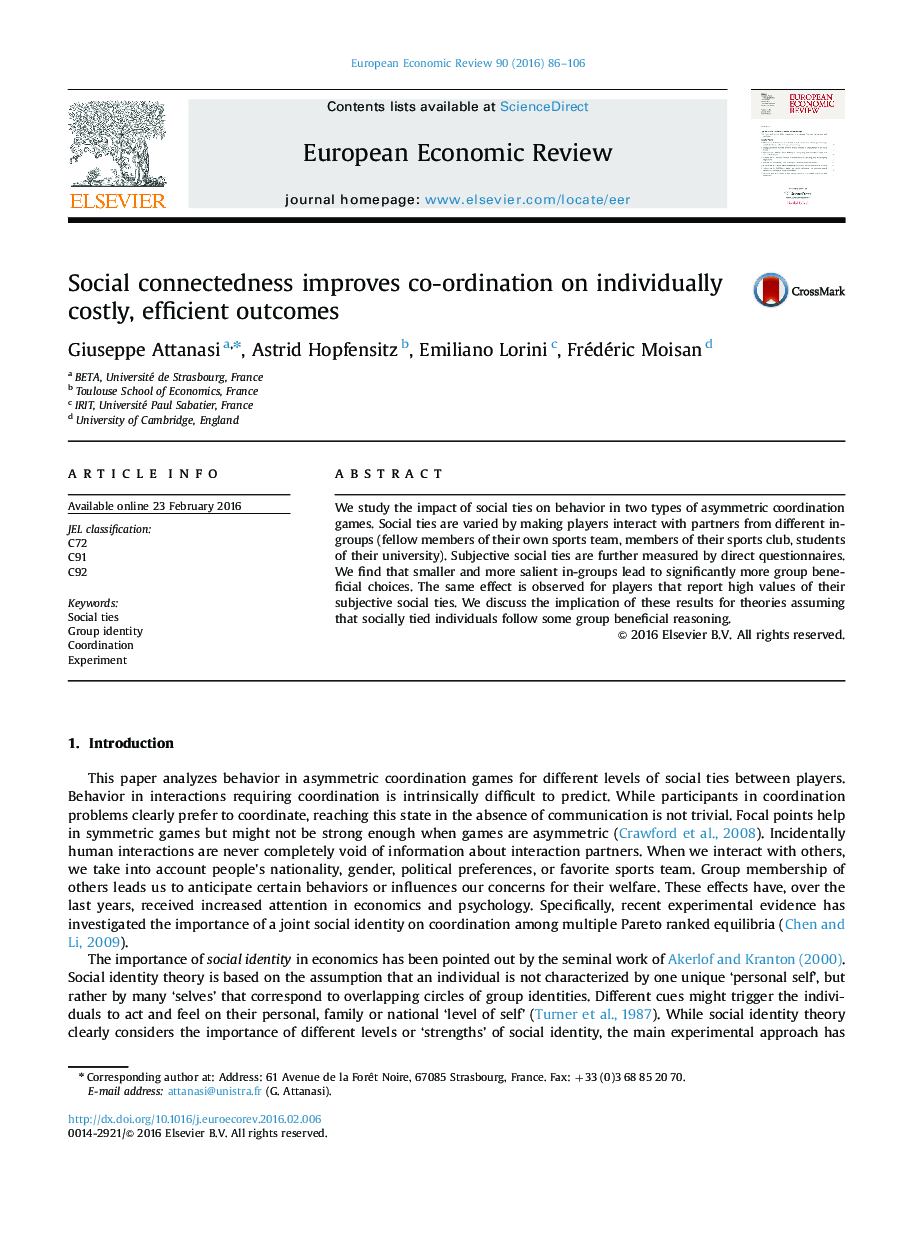| Article ID | Journal | Published Year | Pages | File Type |
|---|---|---|---|---|
| 5066404 | European Economic Review | 2016 | 21 Pages |
Abstract
We study the impact of social ties on behavior in two types of asymmetric coordination games. Social ties are varied by making players interact with partners from different in-groups (fellow members of their own sports team, members of their sports club, students of their university). Subjective social ties are further measured by direct questionnaires. We find that smaller and more salient in-groups lead to significantly more group beneficial choices. The same effect is observed for players that report high values of their subjective social ties. We discuss the implication of these results for theories assuming that socially tied individuals follow some group beneficial reasoning.
Related Topics
Social Sciences and Humanities
Economics, Econometrics and Finance
Economics and Econometrics
Authors
Giuseppe Attanasi, Astrid Hopfensitz, Emiliano Lorini, Frédéric Moisan,
